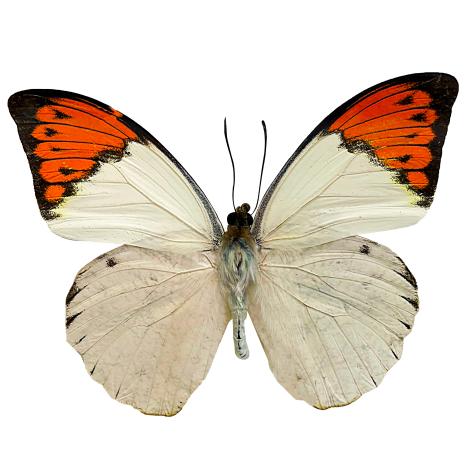
Curiosity Daily Podcast: Roses Smell Different in Space
Learn about emotions in online reviews; how flowers smell in space; and how water efficiency affected human evolution.
May 20, 2021
Episode Show Notes:
Emotions matter more than ratings when it comes to online reviews by Kelsey Donk
- “Emotional” reviews predict business success, new study shows. (2021). Northwestern.edu. https://news.northwestern.edu/stories/2021/04/emotional-reviews-predict-business-success-new-study-shows
- Rocklage, M. D., Rucker, D. D., & Nordgren, L. F. (2021). Mass-scale emotionality reveals human behaviour and marketplace success. Nature Human Behaviour. https://doi.org/10.1038/s41562-021-01098-5
Roses Smell Different In Space—And You Can Smell Like Them Too by Ashley Hamer
- Space Rose Pleases the Senses | NASA Spinoff. (2002). Nasa.gov. https://spinoff.nasa.gov/spinoff2002/ch_1.html
- Space Scents | Science Mission Directorate. (2002). Nasa.gov. https://science.nasa.gov/science-news/science-at-nasa/2002/18dec_scents
- Frequent Questions: The Many Versions of Shiseido Zen. (2010, January 31). Blogspot.com. http://perfumeshrine.blogspot.com/2010/01/frequent-questions-many-versions-of.html
- Impulse Perfumes And Colognes. (2020). Fragrantica. https://www.fragrantica.com/designers/Impulse.html
Human bodies use up to 50% less water than our primate cousins, which may have helped us spread throughout the globe by Cameron Duke
- Humans evolved to be the water-saving ape. (2021). EurekAlert! https://www.eurekalert.org/pub_releases/2021-03/du-het030221.php
- Pontzer, H., Brown, M. H., Wood, B. M., Raichlen, D. A., Mabulla, Audax. Z. P., Harris, J. A., Dunsworth, H., Hare, B., Walker, K., Luke, A., Dugas, L. R., Schoeller, D., Plange-Rhule, J., Bovet, P., Forrester, T. E., Thompson, M. E., Shumaker, R. W., Rothman, J. M., Vogel, E., & Sulistyo, F. (2021). Evolution of water conservation in humans. Current Biology. https://doi.org/10.1016/j.cub.2021.02.045
Follow Curiosity Daily on your favorite podcast app to learn something new every day with Cody Gough and Ashley Hamer — for free!
See omnystudio.com/listener for privacy information.
Next Up
Curiosity Daily Podcast: Preserving Old Book Smells, Reacting Before Noticing, and Humans from Outer Space
Learn about why researchers have broken down the smell of old books; new research that shows why your brain has a kind of Spider-sense; and the Panspermia theory that human life originally came from outer space.
Curiosity Daily Podcast: Looking Into Space Is Looking Back in Time
Learn why soccer players miss penalty kicks; how we estimate population sizes; and how space helps us look back in time.
Curiosity Daily Podcast: Space Slingshot, Ancient Modern Pants, Lifesaving Silence
Hear about a slingshot launching payloads into space, the impressively modern-looking world’s oldest pants, and how moth wings are able to absorb sound to avoid detection from bats.
Curiosity Daily Podcast: Art in Space, Screen Time in Lockdown, Mold vs. Chemicals
Learn about the Space for Art Foundation; how screen time helped kids in lockdown; and mold vs. cleaning product safety.
Curiosity Daily Podcast: How to Stop Procrastinating, Astronauts Seeing Cosmic Rays, and What Causes That Fresh Rain Smell
Learn what causes that fresh rain smell; how astronauts can actually see cosmic rays; and a trick you can use to stop procrastinating called the “frog rule.”
Curiosity Daily Podcast: How Space Changed NASA Astronaut Nicole Stott’s Perspective; Plus, Whistled Languages
Learn what NASA astronaut Nicole Stott learned from her time in outer space. Plus: whistled languages around the world.
Curiosity Daily Podcast: Measure Your Sleepiness, What Happens When Galaxies Collide, and Space Junk Damage
Learn about what it looks like when galaxies collide with one another; how to measure how sleepy you are using the Epworth Sleepiness Scale; and how much damage space junk the size of a pencil eraser can do.
Curiosity Daily Podcast: Astronauts Grew Lettuce in Space, Why Smelling a Dirty Shirt Can Help You Sleep, and Early Animals That Acted Like an Ancient Internet
Learn about how your lover’s clothing could improve your sleep; how astronauts grew vegetables in space for the first time; and ancient animals that were connected by a crude version of the internet.
Curiosity Daily Podcast: Destroying Space-Time for Power (w/ Randall Munroe), Hourglass Figure Myths, Clown Science
Learn how to power your house by destroying the fabric of space-time, with help from xkcd creator Randall Munroe. Then, learn about the surprising reasons why hourglass figures are considered attractive; and, the scientific reason why clowns creep us out.
Curiosity Daily Podcast: An Interstellar Object’s Origin Revealed, Why Superstitions Evolved, and How the Sense of Smell Is More Complicated Than We Thought
Learn about why natural selection favors superstitions; why the way our noses smell is way more complicated than we thought; and where scientists think 'Oumuamua, the first interstellar object, came from.












